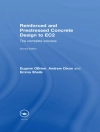This book presents peer-reviewed articles from the 18th Conference of the Associated Research Centers for the Urban Underground Space (ACUUS 2023) held in Singapore from November 1 to 4, 2023. It highlights new opportunities and challenges in underground space use amid a re-focus on exploring and developing the underground space as a strategic resource and part of sustainable development. The new frontier presents unprecedented opportunities for simultaneously improving urban infrastructure, urban livability, and resilience. At the same time, special challenges exist in developing underground space—both from a human design perspective and in terms of complexity, 3D planning, system integration, technical, and life cycle costs. Equally important is the need to move from the creation of underground space as a haphazard, last resort solution to a well-planned, and integrated use of underground space that can serve the needs of society for future generations as well as our own.
As the world emerges from the COVID-19 pandemic and is faced with the many challenges in climate resilience, the works presented in this book provide a timely opportunity and an excellent forum for engaging discussions and exchanges among planners, designers, engineers, researchers, and policy makers.
İçerik tablosu
Rethinking the Role of Underground Architecture in Contemporary Japan: Project Trends Observed in Shinkenchiku Magazine (2000–2020).- The Role of Worker Satisfaction in the Underground Environment with Job Satisfaction and Turnover Intent.- Underground Space Use: Supporting Urban Ecosystem Services.- The Potential of Underground Spaces Around Metro Stations as a Form of Special Urban Forms.- Reservoirs of Heat: A Defining Characteristic of High Thermal Mass Earth-Sheltered Buildings.- The Metro Network as a Heritage System for Historic Urban Landscapes: A Critical Review from China to Spain.- Development of Cultural Landscape and Removal of Urban Visual Pollution Using Underground Architecture—Case Study: Tehran Laleh Park.- Characterization of Multiple Resource Endowment in Urban Underground: A Case Study of Danyang City.- Case Study of Rainwater Treatment System in a Large Urban Underground Space Complex Project in Xi’an China.- Induced Seismicity Caused by Sudden Failure of Rock Joints with Different Undulation.- Spatial Distribution and Susceptibility Mapping of Urban Sinkholes in Shenzhen, China.- Efforts to Move Railway Tracks Underground in Japan.- Study on Coupling Effect of a Complex Deep Foundation Pit Group Excavation in a Soft Soil Area.- Win–Win Situation Between Urban Developments and Underground Spaces (The Case Study of Tokyo Midtown Hibiya).- Study on Reasonable Reinforcement Range of Starting End of Overlapped Shield Tunnel in a Water-Rich Soft Stratum.- Dynamic Response for Deep Buried Water Diversion Tunnel Under the Action of Near-Field Disturbance.- Extending Regularity of Acid Fracturing in Deep Fractured-Vuggy Carbonate rocks—A Case Study of Qixia Formation in Western Sichuan.- DEM-Based Numerical Simulation of Rock Cutting Process Using Conical Pick Under Confining Stress Influence.- Effect of Irradiation Spacing on Fracturing of Hard Rocks Using an Open-Ended Microwave Antenna.
Yazar hakkında
Dr. Wei Wu is an Associate Professor at Nanyang Technological University (NTU), Singapore. He received his Ph D degree at Swiss Federal Institute of Technology in Lausanne (EPFL), Switzerland. Prior to joining NTU, he was a Postdoctoral Scholar at Stanford University, USA. He serves as the Honorary Secretary of Society for Rock Mechanics & Engineering Geology (Singapore), the Associate Editor for International Journal of Rock Mechanics and Mining Sciences, and the Assistant Chair for Research in School of Civil and Environmental Engineering at NTU. His research focuses on experimental geophysics and energy geomechanics, with emphasis on underground space development, geo-energy extraction and storage, as well as induced geohazards due to climate change and energy extraction.
Professor Chun Fai Leung is an emeritus professor in the Department of Civil and Environmental Engineering at the National University of Singapore. He graduated from the University of Liverpool with B.E. in 1977 and Ph.D. in 1981. He is a fellow of Academy of Engineering Singapore. He is a registered professional engineer (geotechnical specialist) in Singapore and a chartered civil engineer in the UK. Prof Leung is currently the Executive Editor-in-Chief of the International Journal on Deep Underground Science and Engineering. He has served as a geotechnical consultant for many government and private organizations involving projects in Singapore and overseas.
Dr. Yingxin Zhou is the Technical Director with Knights Synergy (S) Pte Ltd. He has more than 30 years of experience in research, engineering, and teaching in rock mechanics, rock engineering and underground space technology, and played leading roles in several major pioneering rock engineering and research projects in Singapore. Dr Zhou has served in various leadership positions in local and international societies related to rock engineering and underground space. He is a member of the Editorial Board of the International Journal of Tunnelling & Underground Space Technology, Fellow of the Academy of Engineering Singapore, and Fellow of the International Society for Rock Mechanics & Engineering. He received the 2018 Defence Technology Prize Individual (Engineering) Award in Singapore.
Professor Xiaozhao Li is the founding Director of the Yunlong Lake Jiangsu Provincial Laboratory for Deep Underground Science and Engineering; the Director of the State Key Laboratory for Geo-Mechanics and Deep Underground Engineering, China University of Mining & Technology; the Director of the State Overseas Expertise Introduction Centre for Discipline Innovation of Deep Underground Exploration & Development; the Chair of ACUUS-GEO, International Working Group on Urban Geology and Underground Space of ACUUS; the Chairman of the Deep Underground Space Exploration and Development Branch of CSRME (China Society for Rock Mechanics and Engineering). Professor Li is the founding president and vice editor-in-chief of the International Journal on Deep Underground Science and Engineering.












